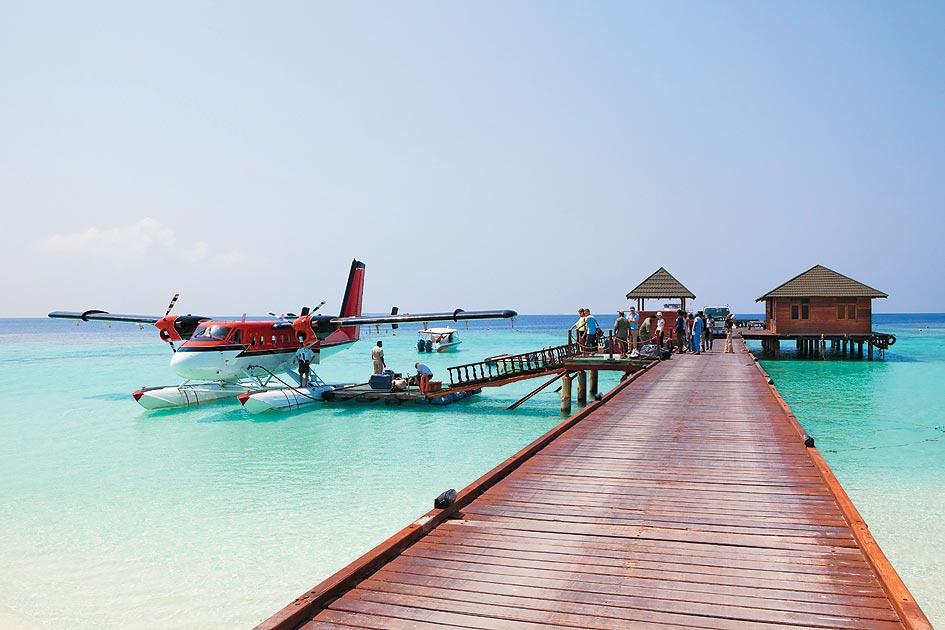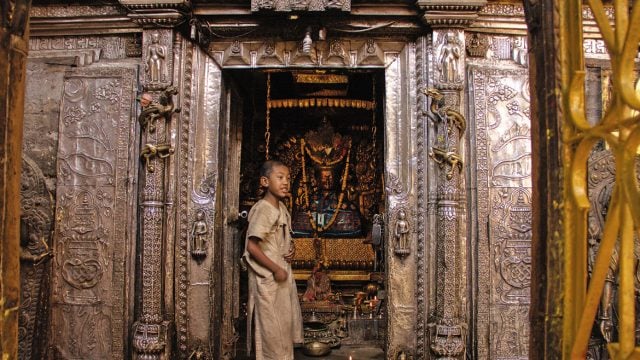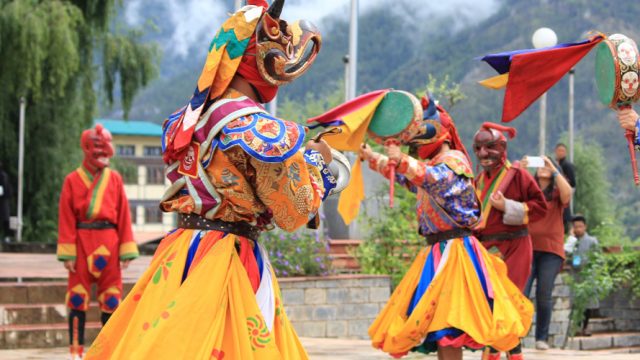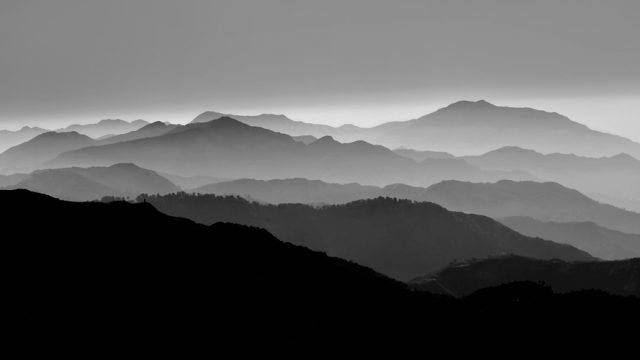01. Chile Go before it’s gone! And because it’s quite the adventure of a lifetime. Not all of
02. Myanmar
Why Myanmar? Because it’s been just over a year since the civilian government came to power and got to promoting tourism in the region with gusto, and because Aung San Su Kyi has said you should come! But seriously, tourism on and along the Mekong is one of the high points of Southeast Asia — several cruises already run to great reviews. Travel is getting cushier on the ground too, with new public transport lined up. Sustainable tourism is the keyword around Bagan, one of Asia’s most stunning archaeological sites, with 2,500-odd stupas and temples. Inle Lake is another hotspot, with its fire balloon festival, the Pindaya Caves filled with gilded Buddhas, local fishing and weaving villages, fantastic natural rock formations and amazing manmade pagodas. Then there’s Mandalay, last seat of the Myanmar kings, and its exquisite carved-teak Golden Palace and the Kuthodaw Pagoda, with the Buddhist scripture carved into 729 marble tablets, making up the world’s largest ‘book’. Myanmar is also the playground of the endangered Irrawaddy dolphin, in case you haven’t met them back home. Indeed, there are 33 national parks in Burma, and some 135 ethnic groups in the population — and you could be the first among your friends to meet them all… if you hurry and get there before it becomes a busy tourism hub (which it will).
03. Lake Eyre, Australia
When is a lake likely to be swamped by tourists? When it fills up only every 20-25 years. Currently going through its fill cycle, which commenced in 2010, Lake Eyre is Australia’s largest salt lake (a sixth of central Australia!) and often sports large dry patches—the exact location and size depending on the El Niño/La Niña tango that determines rainfall in its catchment area. This year, experts are saying it might cross the peak volume reached in 1974. Thanks to 2009’s record-breaking rains and the onset of winter soon (remember the topsy-turvy season down under), you should see a flourishing assortment of plants and birdlife when you fly over in a Cessna this year — though just the huge expanse of (inland) water rippling over desert sands where there were recently roads is stupefying enough. Also in the vicinity are the Flinders Ranges — one of South Australia’s most enchanting outbacks, where you should meet emu, kangaroos, wallabies… and plenty of stationed sheep!
04. Korea
Jeju-do, a Unesco-stamped geopark on the largest island of South Korea, is probably not the first province you thought of when we said ‘Korea’. But there’s a lot to see besides Seoul at the other end of the nation, and this province is quite a nifty amalgam of attractions. The volcanic island with its lava tubes was recognised as a World Heritage Site a few years ago and last year enlisted by the New7Wonders Foundation as one of the planet’s unique natural phenomena. The point of Mt Hallasan National Park is the crater lake atop it, Baengnokdam, though there’s also the Paleolithic site of the Pillemot Cave and the well-marked Olle trails for hiking enthusiasts. To domestic tourists, it is a popular honeymoon destination and locally considered the ‘Hawaii of Korea’, which has also meant a proliferation of manmade ‘attractions’. See english.visitkorea.or.kr
05. European capitals of culture
They’re ranged at opposite ends of Europe, but at least in 2012, Guimarães (Portugal) and Maribor (Slovenia) are twin destinations. These are the European Capitals of Culture in 2012. Guimarães plans a ‘Performance Architecture’ project as well as ‘Pop Up Spaces’. An architectural guide to the city was just launched, and flash mob-style musical entertainment is promised through the year. Maribor, which is also the European Youth Capital of 2013, has its own attractions (the Gothic Maribor Cathedral, the Renaissance-style Town Hall) and is adding a new embankment and footbridge on the Drava river as well as an art gallery. In February, it will hold a workshop inspired by Occupy movements around the world. Later in the year, there are music and theatre festivals. The Live Squares and Courtyards project of performance is in July, and a modern dance festival in August-September. Rent a free bike and get rolling.
06. Offbeat Rajasthan
You and a jeep in the desert. No fixed itinerary. No chauffeur. Does that sound like a tyre or 4×4 commercial? Actually, it’s Overlander India’s spanking new good idea for the hottest domestic trip of 2012, we think. You will see the real rural life of the various communities of Rajasthan’s dhanis. You will trail the black buck and the blue bull, maybe get a shot to snap a chinkara. Leaving behind expectations of paved roads and expressways, you will rumble down dirt tracks and follow camel-caravan routes, maybe cross a dry riverbed or two…with a safety net of support if this is your first time off the beaten path. Set out for a night or two — or five. Overnight in Swiss tents with attached bath (with running hot water!), or for a longer trip, stop sometime at a family-run heritage homestay or hotel. Evenings entail a campfire barbecue (expect to pitch in with the pans!), with local folk dance and music for your entertainment. More information at overlanderindia.com
07. Meroe, Sudan
Yes, yes, last year we said Sri Lanka and now we’re supporting Sudan — we must have a death wish or something. But it’s got the Nubian pyramids and is absolutely lovely, really. The island of Meroe, almost a desert trapped between the Nile and Atbara, was at the heart of the Kush kingdom and recent archaeological finds have seen it listed as a World Heritage Site just last year. Egypt’s passé, after all, and this is where the excitement’s at in this century. Of course, having come all this way, you wouldn’t want to miss the remains of the royal city at Atbara, the temples and pyramids of Shendi, the museums of Khartoum on the Blue Nile and the souk and camel market of Omdurman on the White Nile, not to mention the Tomb of Mahdi.
08. London
This is where the party’s at in 2012. Far from falling down, London Bridge looks all set to span an astounding range of interests and activities this year. Of course, there’s the Olympics, which has brought a new City Hall to complement Tower Bridge, and while tickets for sporting events may have dried up, the London 2012 Festival—the culmination of the Cultural Olympiad—opens on Midsummer’s Day and runs until the Paralympics in September; but there are countdown events already (having kicked off with Edinburgh’s Hogmanay). There’s an exploration of the changing face of London through a multilingual bonanza of Shakespeare productions at Stratford-upon-Avon, a soccer-inspired art installation deep in a Scottish forest, restrospectives of David Hockney and Lucian Freud’s portraits, Cate Blanchett on stage and Damien Hirst at the Tate, Music Nation in March, a nature walk cum treasure hunt to find 2012 species, a search for sites of the 205 Olympic Nations in the Walk the World project… Oh, you shall have a jolly good time at festival.london2012.com! Importantly, many events are free to attend. There’s also the London Festival Architecture in June-July, with the clever theme of ‘Playful City’ (lfa2012.org), the Handel Festival in March-April (handel.cswebsites.org), and the London Street Photography Festival (londonstreetphotographyfestival.org) in June. Surely, there’s something in there to tempt you to tea with the Queen?
09. Bhutan
Do you really need a reason to visit the happiest place on earth? Well, here’s one — Drangme Chhu, the most isolated of the key river corridors in the region. Arising in Arunachal, it makes for the longest river ride you can take in Bhutan and includes some challenging whitewater for excitement and dreamy wilderness for company, as well as some sightseeing at dzongs and monasteries if you choose the tour operator. A trip rarely taken (first done in 2009) brings you downriver till it becomes the Manas, just before emptying into the Brahmaputra just south of the national border. The first few days have the most lively rapids (often charged up by the monsoon), which gentle and smoothen as you approach India. At the end, you can rest for a couple of nights at the Manas wildlife sanctuary. For maximum bragging rights, set out before the world has heard of it. Aquaterra Adventures (aquaterra.in), for example, is doing a trip this February.
10. Maldives
As an environmentally conscious traveller, you probably think we’ve dived off the deep end when we suggest Maldives to you. But hear us out. There’s nothing new to say about Maldives’ blue beauty, its rainbow-hued reef-resident fish. But the island nation’s first freely elected president has been dubbed a ‘hero of the environment’ (Time magazine) and he is serious about change. The first environmental laws of the land are now on the anvil; there are plans to put in public transport (ferries) and mobile bridges to connect the 1,190 islands; and one of the world’s most beautiful marine destinations hopes to be the world’s first carbon-neutral nation and an oil-free one to boot by 2020. So how about you put your money where your mouth is, and help out a community striving to turn back the clock on dreaded climate change — and have yourself a helluva holiday while you’re about it. Also, in line with the ministry of tourism’s efforts to encourage mid-market travellers and not just the affluent guests of luxury resorts, new 3/4-star hotel chains and budget resorts are coming up too. After all, tourism is the basis of Maldives’ economy and they’ll be needing money to put those plans into action—while you might have saved a whole nation of lives (and livelihoods) from rising water levels and coral death.
11. New Zealand
Are you a pedestrian tourist? If you’re the one who gets up at crack of dawn to go walkabout in a new city, New Zealand’s is the visa to line up for. The Long Pathway, aka Te Araroa — one of the world’s longest walking routes (3,300km) — opened up last month, linking Cape Reinga, at the northern tip of North Island, and Bluff, on South Island’s southernmost coast. Consisting of old trails and back-country roads linked by new tracks and signposts, this one should keep you going for months and includes as its highlight a crossing of the volcanic landscape of Tongariro. Download that map from teararoa.org.nz and go now. You’ll find it’s also possible to take off at a tangent on short off-trail excursions along the way. If you get tired, you can always stop for a few at Wellington, which is en route. You’d miss the sheer assortment of landscapes, from coastal lowlands and native forests, to alpine country though. And it’s not all traversed by shank’s mare, really—some sections are bicycle-friendly (in the Mackenzie Basin), and there’s a watery section of Long Island to kayak across.
12. Suzhou, China
If you’re a foodie, Suzhou prefecture’s savoury mooncakes are delectable, and autumn brings even domestic tourists flocking for the hairy crabs farmed only in Yangcheng Lake. If you’re a history buff, the past is still being peeled back in 2,500-year-old Suzhou, one of the oldest towns in the Yangtze basin — it is where rice cultivation originated, and new digs last year found an ancient town and tombs spanning six dynasties. The Suzhou New Museum (entrance free; beside the Humble Administrator’s Garden, China’s loveliest) complements its collection with the tradition-inflected architecture of I.M. Pei, a son of the city. Among culture vultures, Suzhou’s gardens are justly famous, the photo-ops at the watertowns of Zhouzhuang (pic) and Jinxi make snap-happy tourists sing, and the Kun Opera Museum celebrates the Unesco-recognised endangered art that is mother to all opera! If you’re a shopaholic, the silk is famous and there’s a whole embroiderers’ street. Suzhou has won a national award for tourist satisfaction; seven new municipal tourist resorts were unveiled last year; it’s 17 minutes from Shanghai by bullet train; and the metro launches soon. They just started promoting Suzhou in Times Square, so book your room before the Americans arrive. More at classicsuzhou.com.
Chile
European capitals of culture
Lake Eyre





